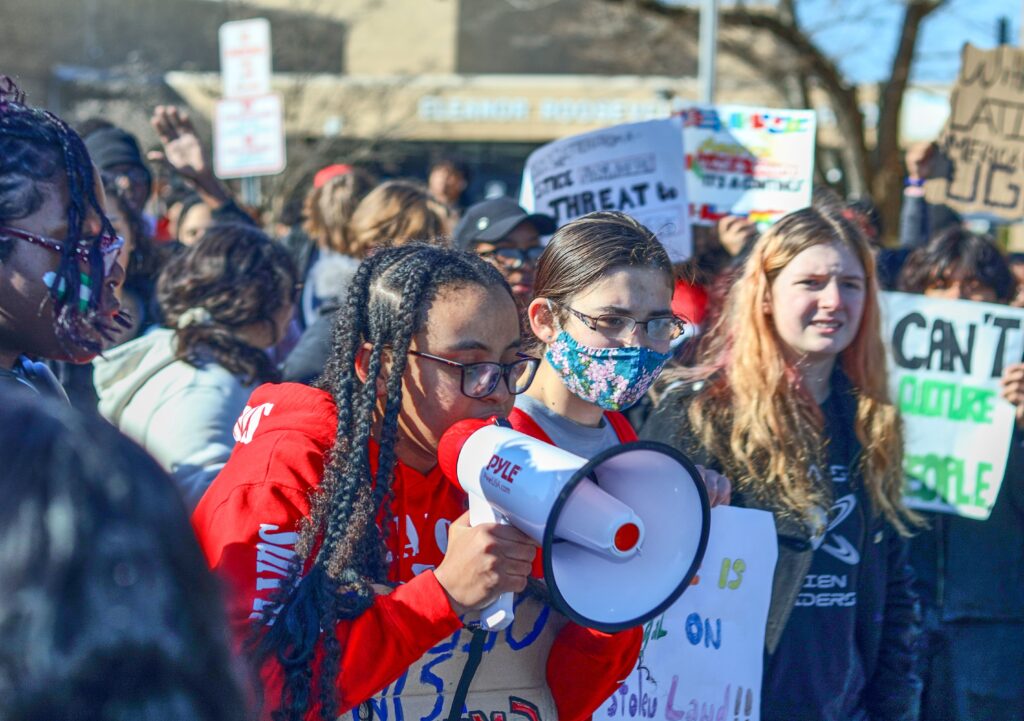It’s been four weeks since the federal government shutdown ‒ 22 work days at publication time. For many Greenbelters who are federal workers, that means one fully missed paycheck and one partial one.
“Disorienting” was how one Greenbelt resident who works for NASA described the experience of being furloughed. It’s his fourth furlough since 2010. A lot of aspects of this furlough are familiar, he says: the mad scramble to forward-fund contracts and projects as far as possible in the frantic days leading up to the shutdown, and the day of putting away the computer and entering a communications void.
Uncertainty
Those first days involved a lot of nervous energy, he said, wondering how long it would last and if he had done everything he needed to “mothball” his projects. But that has dissipated now.
Where this shutdown is different from earlier ones is its “extreme uncertainty,” he says. There’s uncertainty about the duration, back pay, further Reductions in Force (RIFs) and a whole host of outcomes. He, and other federal workers he knows who cannot work, are trying to keep busy, at home, volunteering, getting out of town or walking in the woods. Weeks in, missing their work and the purpose it gave them, some are “casting about for other things to do” at home and in the community. He’s joined a Facebook group for furloughed Greenbelters forming a volunteer network. Its members have found some meaningful volunteer opportunities like a woodland clean-up and work at the Three Sisters Gardens.
“What I’m feeling more acutely this time is that NASA tends to furlough 80-90 percent of its workforce,” ordering them to stay home, he added. They strictly define what an essential employee is, which doesn’t necessarily align with other agencies. There is some disparity between agencies, he believes. “Frankly I would much rather be working for no pay than not working for no pay,” he said, expressing a keen wish to keep things progressing in his work life.
Working Without Pay
Another Greenbelter who is essential must report 9 a.m. to 5 p.m., five days a week without pay. For her that involves driving to Springfield, Va., every day, which is a trek with traffic and incurs gas expenses. In her 20s, one of the youngest workers who spoke with us, she has spent three years in her job and is experiencing her first shutdown. She currently lives with a parent, though plans to move soon, she said. Like others, savings provided a buffer this first month, reducing the immediate impact of paycheck loss. If the shutdown lasts until late November, she’ll feel the pinch, she said. “I am super conscious of spending, approaching the end of the year with holidays coming up and no real end in sight,” she said.
Another Greenbelt family with an essential worker is trying to manage on a single income. Credit is their friend at the moment, they said. They are contemplating one of the zero interest loans currently being offered to federal workers if the shutdown drags on. One of their expenses: tuition for their child who attends a school for children with learning differences. They hope that being essential and working through the shutdown means that back pay is more secure.
Back Pay
The Government Employee Fair Treatment Act of 2019, signed by Trump in his first term, requires that all essential and furloughed employees receive back pay. However, this month Trump suggested he might be able to select which employees receive back pay and has sought to carry out firings prohibited during a shutdown. “It really depends on who you’re talking about,” Trump said about back pay for furloughed workers. “But for the most part, we’re going to take care of our people. There are some people that really don’t deserve to be taken care of and we’ll take care of them in a different way.” Statements like this and bucking established procedures and laws is leading to more anxiety among the furloughed workers and the sense of unpredictability several spoke of. Some in Greenbelt are single-income households, including single parents now with no paycheck, or two-income homes of two federal workers.
Those furloughed and unable to work seem less certain they will receive back pay. We asked one about her confidence in back pay and she joked, “Flip a coin.” She said, “When we were furloughed for one pay period, I was less concerned and as this stretches on I’m more concerned, not just for myself but for my colleagues. I get less confident as this goes on and partly that’s just not knowing what people’s security pot looks like.” She finds herself contemplating the unusual position of applying for other jobs while not yet unemployed, she said. There is also a lot of trepidation about entering a difficult and saturated job market. “I know several friends, including people who weren’t federal employees but were affected by federal cuts, who have been out of jobs for eight plus months now. These are intelligent people with multiple degrees – a mathematician, a data scientist, a conservationist…. They have had interviews but they’re still out of work.”
Outside Employment
More than one worker we spoke with was doing side work to generate some income. However, many federal agencies require prior approval through an outside employment procedure for civil servants, explained one furloughed worker. And the people who would clear that employment are not there to do so. So, it’s hard for people to get another job or at least one with a W-2, he said. There would need to be a blanket authorization to seek outside employment without using the regular process, for people to do other paid work during the shutdown, said the furloughed resident.
Reassessing Work
A sense of keeping busy with meaningful tasks was common among furloughed Greenbelters. Several were cleaning out attics or basements. One is scheduling doctors’ appointments and things they don’t have time for as a full-time worker, commuter and parent. That federal worker, in particular, while acknowledging how fortunate she is to have a spouse’s income to rely on for the moment, found the positive outcome of being furloughed is her ability to once again eat dinner with her family. She began teleworking almost 20 years ago, before having children, and became fully remote during the pandemic. An executive order on the day of Trump’s January inauguration directed all federal agencies to end remote work. Now she commutes over an hour each way, adding over 12 hours away from home to her work week. “Being on furlough has given me a chance to reconsider,” she told the News Review. She is grateful to still have a job but would like to look for one closer to home. “I don’t want to leave the work I’m doing; I think it’s important,” she said, yet it’s also become very stressful because so many people have left. Institutional knowledge has been lost as some take retirement, voluntary separation and forks in the road, and there’s been a loss of young staff who had just a few years at work, with excitement about being a public servant. It’s been a stressful six months and her department has been talking about RIFs since May. While some court orders have stayed those actions, there is still great uncertainty about what an upcoming RIF might look like.
Public News of Shutdown
“This shutdown seems to be taking much longer to garner public attention,” said one of the furloughed Greenbelters. He was surprised how little media attention it has received, overshadowed by other news, including Gaza and the White House demolition.
Several people were afraid to speak to us because they have been ordered not to talk to the press. One Greenbelt federal worker, currently categorized as essential and working without pay, withdrew from an interview because they received a stern warning against talking to the press this week and fear it might arise in their polygraph. The government can prohibit employees from sharing confidential information or speaking on behalf of an agency, but blanket gags on speaking with the press are illegal. Federal employees still have First Amendment rights. However, a climate of fear, job insecurity, and illegal directives makes them afraid to exercise them.
Helping Furloughed Neighbors
One furloughed worker foresees the shutdown continuing until mid-November or December. He said “There’s quite a bit of concern,” saying “I know there are resources out there from financial institutions, payment companies, utilities.”
“Our union has been advocating for us to keep calling congressional members,” another furloughed employee told us. “Even though there is a large number of federal workers in our district that they’re probably hearing from, you can have friends call in other areas and just ask Congress to do its job,” she said. She also recommended Capital Area Food Bank as a trusted group her family supports, one she knows many federal employees have relied on. Supporting that food bank “through treasure, talent or time” would be helpful, she suggested. See capitalareafoodbank.org or call 202-644-9800.



